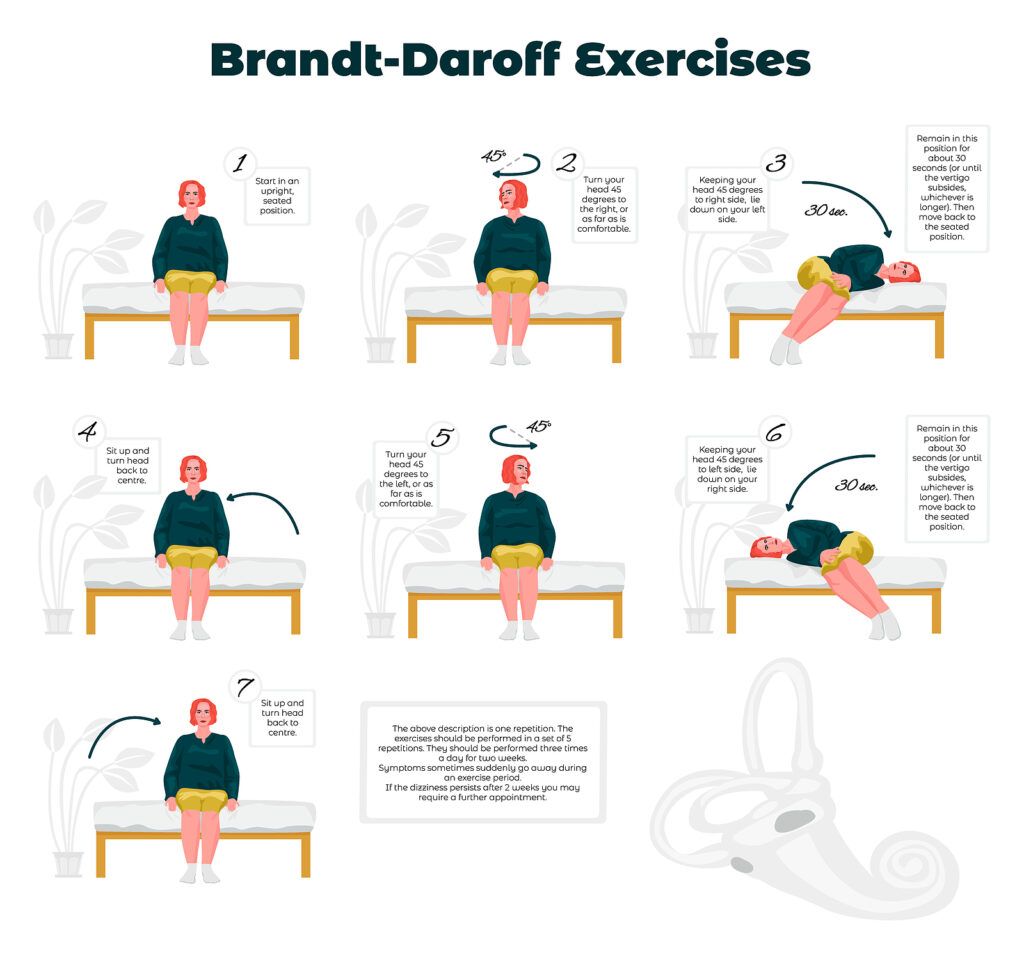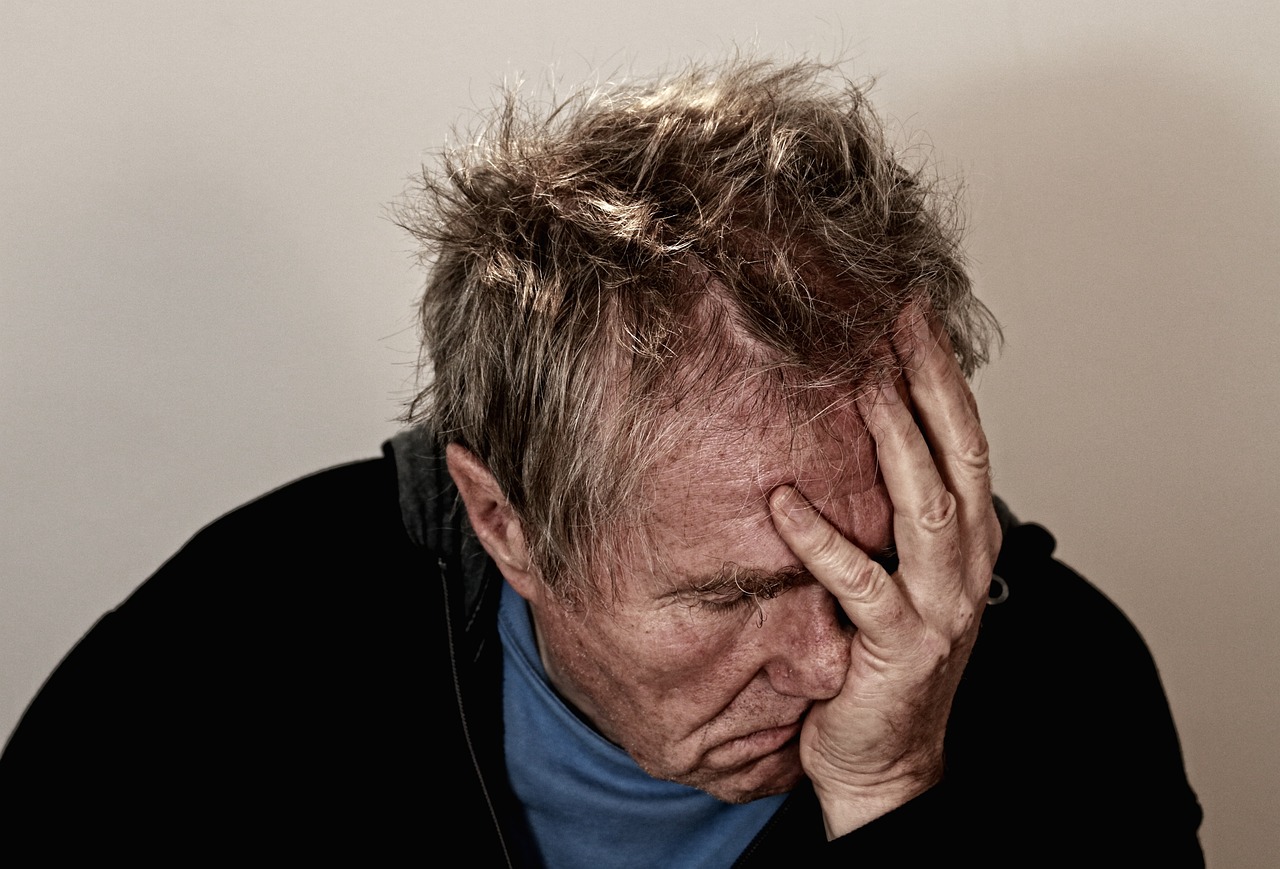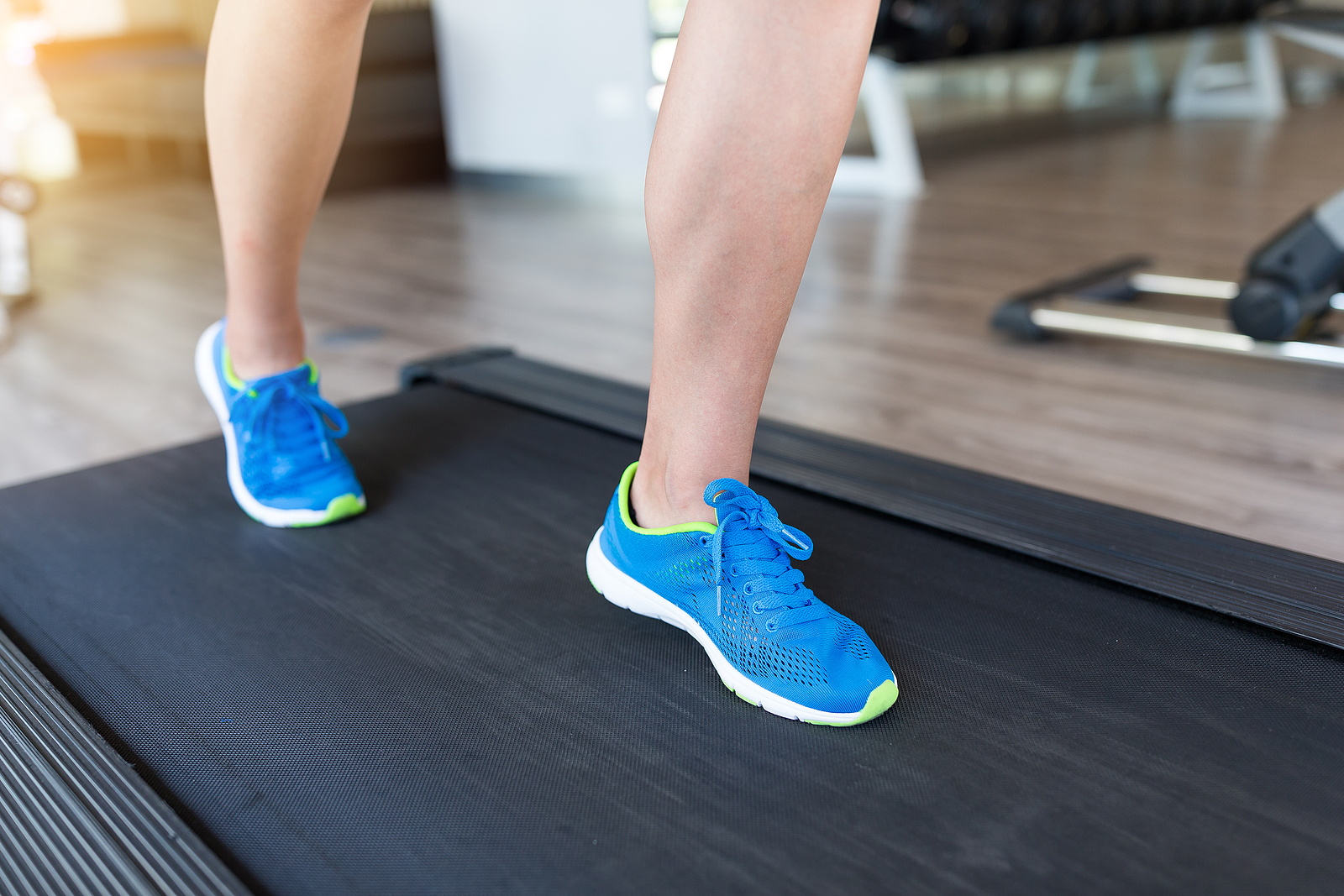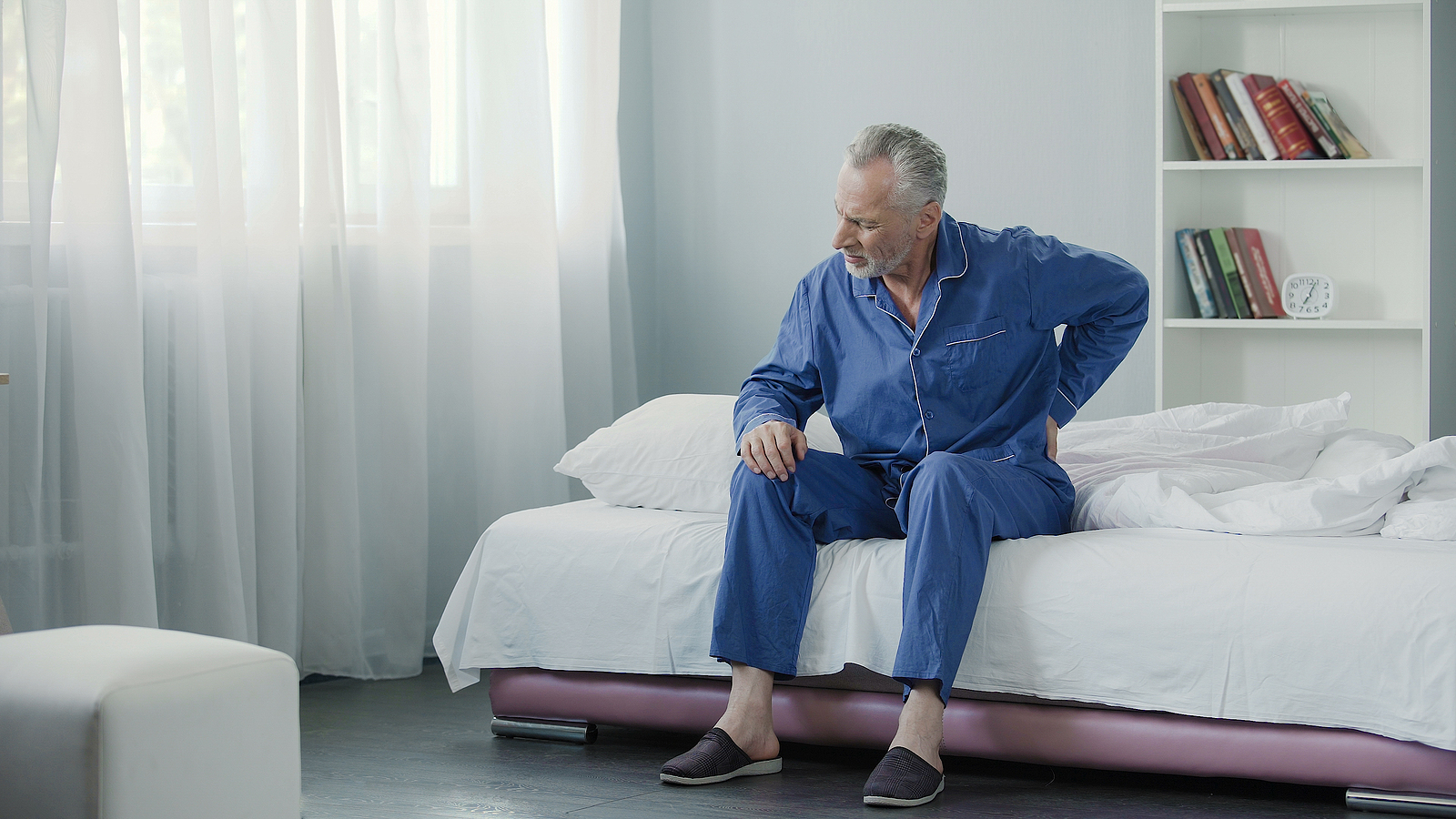Dizziness is a common complaint among seniors, but it can be particularly unsettling when it occurs while lying down.
Getting in bed or reclining in a favorite chair should be relaxing – you shouldn’t have to worry about dizziness or vertigo.
Whether it happens as soon as you recline or after turning your head while in bed, this sensation can be distressing and sometimes even debilitating.
Not to mention the anxiety that can come with repeated episodes.
Fortunately, these dizziness symptoms can usually be resolved, but it’s important to figure out what’s causing them first.
Once you have an idea as to the cause, you can go about a treatment plan to help you manage your dizziness.
In this guide, we’ll go over the most common causes of dizziness when lying down; we’ll also discuss some treatment options to help correct the problem.
After reading, you should have a better understanding about the sensations you’re feeling.
Dizziness or Vertigo?
A lot of folks use the terms “dizziness” and “vertigo” interchangeably, but these are actually different sensations.
Dizziness often refers to a more generalized sensation of feeling lightheaded, off-balance, or woozy.
On the other hand, vertigo describes the specific sensation of feeling as if you (or the room) is moving.
Vertigo can range from a mild sense of movement to a more intense spinning sensation.
Vertigo often comes with feelings of nausea too, so if you get nauseous when lying down, you’re likely experiencing vertigo.
This type of dizziness can make it difficult to get comfortable in bed, disrupt sleep, and increase the risk of falls when getting in or out of bed.
It’s important to determine whether you’re feeling dizziness or vertigo because the causes for each can differ.
Pin-pointing exactly what you’re feeling can make it easier to find the cause.
For more info, check out my full guide on dizziness and vertigo.
Common Causes of Dizziness When Lying Down
Several factors can contribute to dizziness when lying down, particularly in seniors. Here are some of the most common causes:
1. Benign Paroxysmal Positional Vertigo (BPPV)
BPPV is one of the most common causes of dizziness when lying down.
It occurs when small calcium crystals in the inner ear become dislodged and move into one of the ear canals.
These crystals can interfere with the normal fluid movement in the ear that helps control balance, leading to brief (usually 20 – 30 seconds) but intense episodes of vertigo, especially when you change the position of your head.
BPPV is very common and can come and go without warning, so odds are, most seniors will experience it at some time or another.
The good news though, is that it’s usually easy to treat.
A physical therapist or ear, nose, and throat (ENT) specialist can assess you to determine which exercises would be most helpful in correcting your BPPV.
There are also exercises you can try at home to help manage your symptoms when they occur.
- Symptoms: A sudden spinning sensation when you lie down, roll over in bed, or look up.
- Treatment: BPPV is often treated with a series of head movements (like the Epley maneuver) which helps move the crystals back to their proper place in the ear.

2. Inner Ear Infections or Inflammation
Inner ear infections or inflammation, known as labyrinthitis or vestibular neuritis, can also cause dizziness when lying down.
These conditions affect the balance nerve within the ear, leading to vertigo, especially when changing positions.
Treatments for these conditions vary, depending on whether they’re bacterial or viral in nature, but physical therapy is often prescribed to help reduce symptoms and improve balance.
- Symptoms: Vertigo, hearing loss, tinnitus (ringing in the ears), or a feeling of fullness in the ear.
- Treatment: Treatment usually involves medications to reduce inflammation and treat the infection, along with vestibular rehabilitation exercises to help restore balance.
3. Low Blood Pressure (Hypotension)
A sudden drop in blood pressure when you change positions, such as lying down or standing up, can cause dizziness.
This condition, known as orthostatic hypotension, is common among seniors and can be triggered by dehydration, certain medications, or underlying health conditions.
Orthostatic hypotension usually occurs when standing from a sitting position or sitting up from a lying position, but you could also get dizziness when lying down as well.
- Symptoms: Lightheadedness or dizziness upon lying down, standing up, or after a meal.
- Treatment: Managing orthostatic hypotension involves staying hydrated, adjusting medications with your doctor’s guidance, and moving slowly when changing positions.
4. Medication Side Effects
Certain medications, particularly those used to treat high blood pressure, anxiety, or depression, can cause dizziness as a side effect.
When taken before bed, these medications may contribute to dizziness when lying down.
- Symptoms: Dizziness, lightheadedness, or a feeling of imbalance after taking certain medications.
- Treatment: Consult your healthcare provider to review your medications. They may adjust your dosage, switch you to a different medication, or suggest taking your medication at a different time of day.
5. Vestibular Migraines
Vestibular migraines are a type of migraine that specifically affects the vestibular system (inner ear), which is responsible for helping us maintain our balance.
Unlike typical migraines, which are often characterized by intense headaches, vestibular migraines may not always involve head pain.
Instead, they can cause severe dizziness, vertigo, and balance issues, particularly when lying down or changing positions.
Vestibular migraines are thought to occur due to abnormal electrical activity in the brain that affects the vestibular system.
This condition can be particularly challenging to diagnose because its symptoms overlap with other causes of dizziness, such as inner ear disorders or BPPV. However, recognizing vestibular migraines as a potential cause of dizziness is important, especially if you have a history of migraines or sensitivity to motion.
- Symptoms: Vertigo when lying down, feeling lightheaded, headaches, and sensitivity to light and sound can all be symptoms of vestibular migraines.
- Treatment: Identifying triggers for these migraines and avoiding them can help reduce their frequency. Your doctor may also prescribe medications to help manage symptoms, as well as physical therapy to help reduce the intensity of the dizziness.
Preventing and Managing Dizziness When Lying Down
If you experience dizziness when lying down, there are several steps you can take to reduce the frequency and intensity of episodes:
- Move Slowly: When lying down, sitting up, or turning in bed, do so slowly to give your body time to adjust. Rapid movements can trigger dizziness.
- Stay Hydrated: Dehydration can contribute to low blood pressure and dizziness, so make sure to drink plenty of fluids throughout the day.
- Avoid Alcohol and Caffeine: Both alcohol and caffeine can exacerbate dizziness, particularly if you’re prone to vertigo or low blood pressure.
- Elevate Your Head: Sleeping with your head slightly elevated can help reduce the likelihood of dizziness when lying down. Try using an extra pillow or adjusting the angle of your bed.
- Consult a Healthcare Provider: If your dizziness is frequent or severe, it’s essential to consult your healthcare provider for a thorough evaluation. They can help diagnose the underlying cause and recommend appropriate treatments.
When to Seek Medical Attention
While dizziness when lying down is often manageable, it’s important to seek medical attention if:
- The dizziness is accompanied by severe headache, chest pain, or shortness of breath.
- You experience sudden hearing loss, vision changes, or difficulty speaking.
- The dizziness is persistent and interferes with your daily activities or sleep.
- You have a history of heart disease, stroke, or other serious health conditions.
- You’ve had falls or are starting to feel less confident with your home mobility
Final Thoughts
Dizziness is an uncomfortable sensation, especially when it happens when you’re trying to get comfortable and relax.
But it can become a more serious issue if it’s disrupting your sleep or increasing your fall risk.
If you can discern between general dizziness and vertigo (spinning sensation), it can make diagnosing your issue easier.
And if you’re experiencing vertigo when lying down in bed, odds are you have BPPV – but again, this is very treatable.
If you’re concerned about your symptoms, don’t hesitate to reach out to a healthcare provider for guidance and support.
Remember, there’s no need to suffer in silence – addressing the issue early can lead to better outcomes and a higher quality of life.
I hope you found this article helpful and if you have any comments or questions (or would like to share your experience with dizziness), please leave ’em below and I’ll get back to you shortly.



